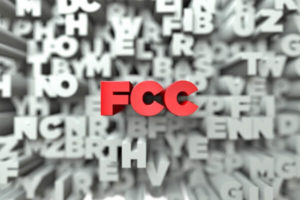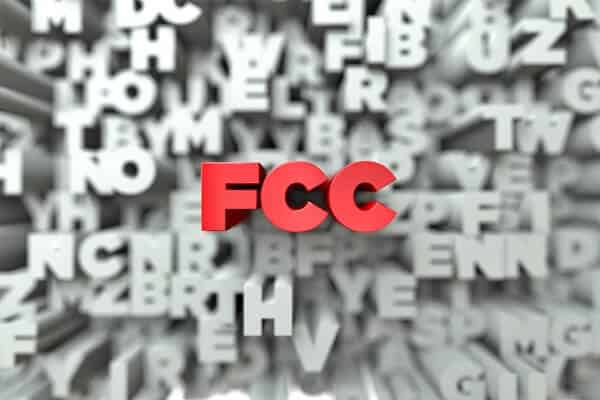The ACA together with joint trade partners on Wednesday, September 2, has delivered a Comment Letter to the FCC in which they repeatedly state the urgent need for correction options and protections for legitimate businesses trying to make important and urgent calls.
The scope of the letter is to remind the FCC of its original call for “effective redress options” in the TRACED Act. In the many months since it’s been signed into law, the FCC has been hard at work deciding on a timeframe and procedure for its implementation. However, the focus has been to stop robocalls, without much attention being placed on protecting lawful callers and providing those options for reparations.
Who Signed the Letter?
The comment letter, published on ACA International’s website, is signed by the following organizations:

- American Bankers Association
- ACA International
- American Association of Healthcare Administrative Management
- American Financial Services Association
- Credit Union National Association
- Consumer Bankers Association
- Mortgage Bankers Association
- National Association of Federally-Insured Credit Unions
- National Retail Federation
- Student Loan Servicing Alliance
What Does the Letter Specify?
The main argument of the letter correctly posits that many legitimate and urgent calls continue to be blocked under the current legal framework.
As part of the TRACED Act, the FCC required Voice Service Providers to develop plans and mechanisms to notify callers that their calls have been blocked. The ACA reports that many of its partners are not seeing such mechanisms, or if these exist, they are ineffective in their one purpose, as the partners “continue to experience improper, error-prone labeling of outbound calling numbers, blocking of legitimate calls, and difficulty identifying and remedying blocked calls.”
The letter further goes on to point out that the adoption of “safe harbors” for voice providers will undoubtedly increase the number of wrongly blocked legal calls.
Letter Requests
As part of their letter to the FCC, the ACA & Partners request the following:
- requiring Voice Service Providers to notify callers immediately when a call is blocked;
- requiring Voice Service Providers to remove erroneous blocks promptly — no later than 24 hours after the Provider learns of the block;
- prohibiting a Voice Service Provider from blocking a call that cannot be authenticated under the STIR/SHAKEN call authentication framework because the call originated from a Provider that cannot sign calls or the call traveled through a Provider that is unable to transmit the authentication information;
- requiring Voice Service Providers to apply the TRACED Act redress mechanisms to the third-party call-labeling services that Providers utilize.
This proposed course of action would indeed satisfy all parties specified by the TRACED Act, protecting consumers from robocalls and fraudulent calls, as well as offering effective redress options for lawful callers.
What’s Next?
The ball is in the FCC’s court. Of course, it could choose to ignore the letter, yet that would lead only to further issues between the Commission and legal actors within the space.
In any case, the timeframe for TRACED Act implementation is as follows:
- By September 25, 2020, the FCC must bring regulations for the civil forfeiture provisions of the act.
- By December 24, 2020, The Hospital Robocall Protection Group is required to come up with the best practices to protect hospitals from robocalls.
- By December 30, 2020, the FCC must report to House Committee on Energy and Commerce and Senate Commerce Committee on how call authentication frameworks were put in place.
- By June 23, 2021, the FCC needs to have a proceeding to establish how the best practices of the Hospital Robocall Protection Group can be facilitated.
- By June 30, 2021, the FCC must require STIR/SHAKEN implementation among all IP Networks, while non-IP Networks must efficiently support a call authentication framework.
Summing Up
The current letter has some chances to be taken seriously by the FCC. Not only is it penned by a large, trustful group of entities, but it also presents a relevant and plausible course of action for the Commission, essentially doing their job for them.
Whether it will have any effect or trigger any response from the FCC remains to be seen.
Protect yourself from the TRACED Act and work with us to enable full attestation on all the numbers you’ll be using. We have a complete plan in place for STIR/SHAKEN implementation and we’ve been working with our partners at Numeracle to make sure all our clients stay on the right side of the law.
Plus you get crystal clear voice lines delivered on a global network of carriers with many redundancies in place to protect your calls. Let’s chat today!

Michael McGuire is a contact center industry expert with almost two decades of experience in the space. His experience includes roles as Director of Contact Center Digital Transformation at NobelBiz, and as Director of Operations at FLS Connect, managing multiple call centers. As President of Anomaly Squared and Targeted Metrics, Michael successfully transitioned companies into remote operations and significantly boosted revenues. With a strong background in customer service, leadership, strategic planning, and operations management, Michael excels in driving growth and innovation in the call center space.
Mike is also a proud Board Member for R.E.A.C.H Trade Group, promoting consumer protection and satisfaction and Co-host of the Off Skripted Podcast – a show about Life, Call Centers and everything in between.







